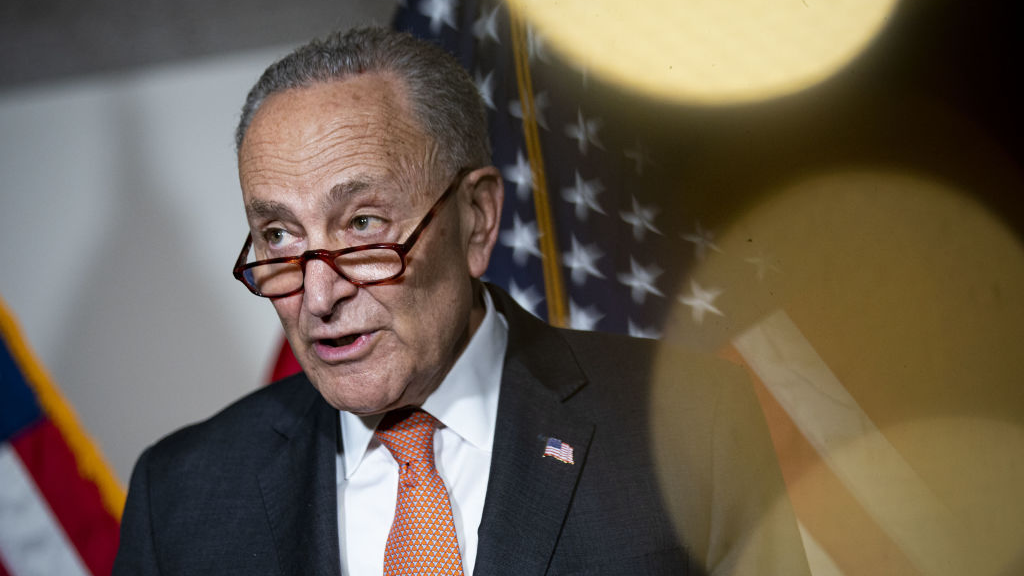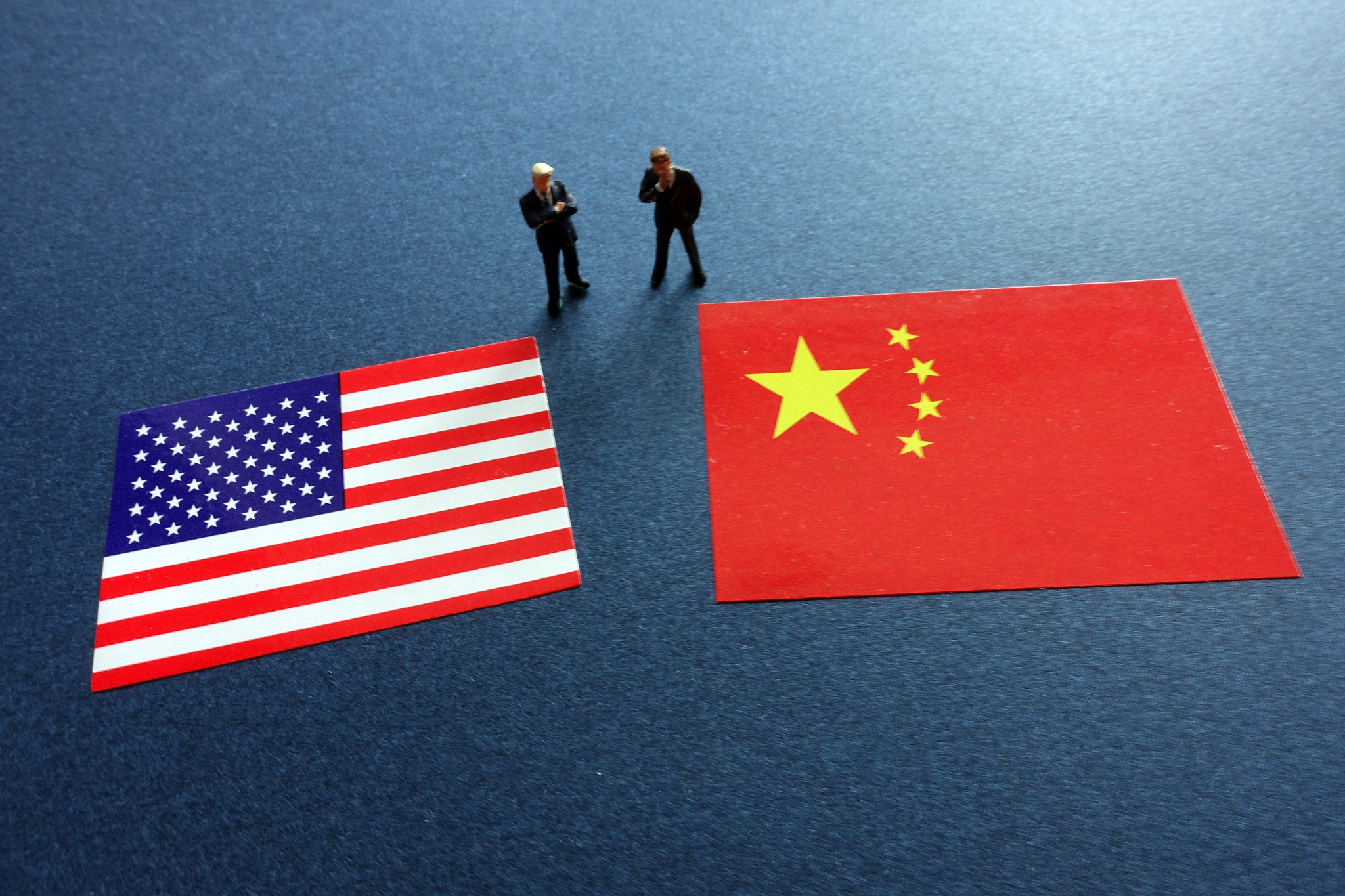
Senate Majority Leader Chuck Schumer speaks during a news conference on Capitol Hill in Washington, D.C., U.S., June 8, 2021. /Getty
Senate Majority Leader Chuck Schumer speaks during a news conference on Capitol Hill in Washington, D.C., U.S., June 8, 2021. /Getty
Editor's note: Anthony Moretti is an associate professor in the Department of Communication and Organizational Leadership at Robert Morris University. The article reflects the author's views and not necessarily those of CGTN.
In basketball, a slam dunk draws headlines, but a failed slam dunk is especially noteworthy because fans are left wide-eyed with wonder as the ball that should have gone through the net heads off somewhere no one expected instead.
You cannot blame Senate Majority Leader Chuck Schumer if he feels like his slam dunk attempt has been blown. And the embarrassment might only get worse.
Yes, the Senate, on Tuesday, finally passed the much-discussed and controversial United States Innovation and Competition Act of 2021 (USICA). However, the bill Sen. Schumer, a New York Democrat, envisioned and what it turned out to be is much different. And more damage could be on the horizon. President Biden knows not to have his pen ready because it remains unclear what kind of bill he actually will sign into law. Or when.
The rhetoric that accompanied this roughly $250 billion bill was intense: Republicans especially hammered away at the idea that China was a threat to the U.S. at home and abroad, and America had to do something about it. U.S. leadership around the world was at stake, Americans were told. The country could not afford to lose any of the lead it had over China in critically important scientific areas, one politician after another warned.
So, what happened?
One critic astutely noted that Senate politics – a process that ought not to be summarized in just a few words – so watered down the legislation that "only a small fraction" of the money will actually go toward research and development, which was a major talking point of the bill. On top of that, and to borrow another basketball phrase, a full-court press was made on Republicans to avoid spending potentially unnecessary dollars.

The National Taxpayers Union reminded its audience that the U.S. already "outspends China on R&D both in absolute terms and as a percentage of gross domestic product (GDP)." The Cato Institute examined similar data and stated the results "should at least warrant skepticism … and likewise demand hard proof from advocates that government funds will actually boost American innovation." In another report, the Institute questioned just how much of a threat China is to the U.S.
Now the USICA goes to the House of Representatives, a body that is working through its own legislative options similar to the USICA. Whatever momentum the USICA has built up could stall because it is doubtful the House will begin voting on possible legislation until at least the end of this month. The House also appears ready to tone down some of the more controversial language endorsed by the Senate.
The USICA has drawn critical responses from China. Taiwan is identified as a "vital part of the United States Indo-Pacific strategy" and is urged to increase its defense spending "in order to fully resource its defense strategy."
Another section appears to run afoul of the U.S. Constitution by opening the door for the State Department and other "United States Government departments and agencies to interact directly and routinely" with Taiwan. Although the language in the bill states the U.S. has no interest in announcing "full diplomatic relations" with Taiwan, it is understandable why Chinese officials would especially view this part of the USICA as direct interference in domestic Chinese affairs.
The USICA sets aside more than $1 billion to "counter the malign influences of the Chinese Communist Party," which is accused of having "hegemonic ambitions" while also supporting "transnational criminal networks."
We will ignore whether the U.S. government has ever engaged in such activities (we know that answer, by the way) and remember this kind of rhetoric regularly appeared from roughly 1945 through 1990, when the U.S. saw the Soviet Union as a threat to its hegemony. Now, China is the boogeyman.
The House and Senate remain under a watchful media eye. If there are major problems reconciling the Senate version to whatever comes out of the House, it would be viewed as the equivalent of the Senate and the House each blowing a slam dunk. But far more importantly, it would remind domestic and international audiences that America's political system is so fractured at this point that even though almost every politician wants to bang the anti-China drum, they cannot agree on legislation to walk that walk.
(If you want to contribute and have specific expertise, please contact us at opinions@cgtn.com.)

